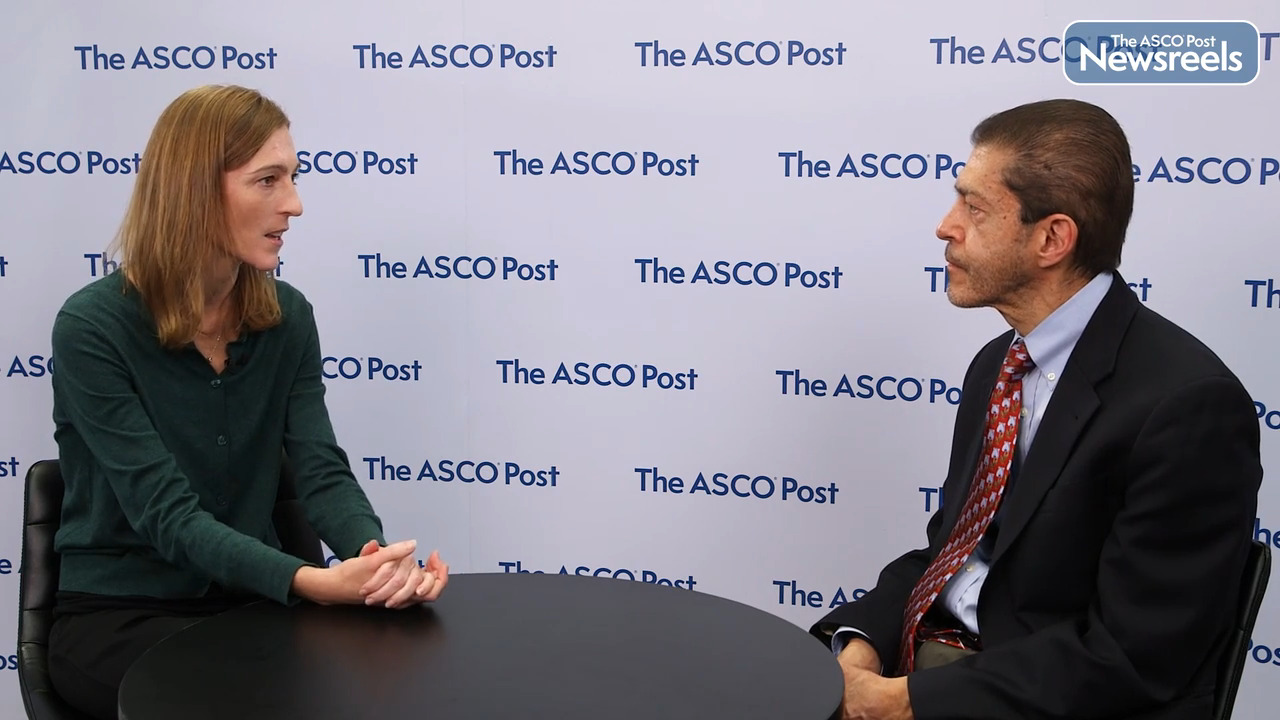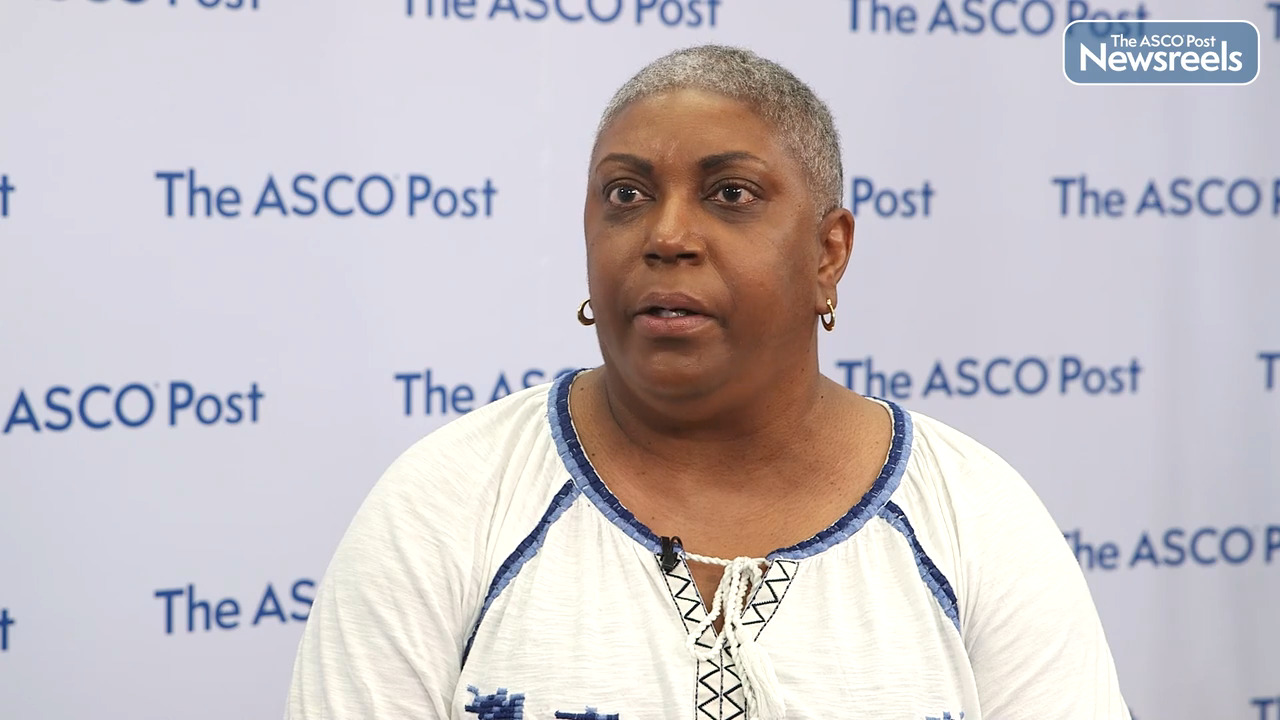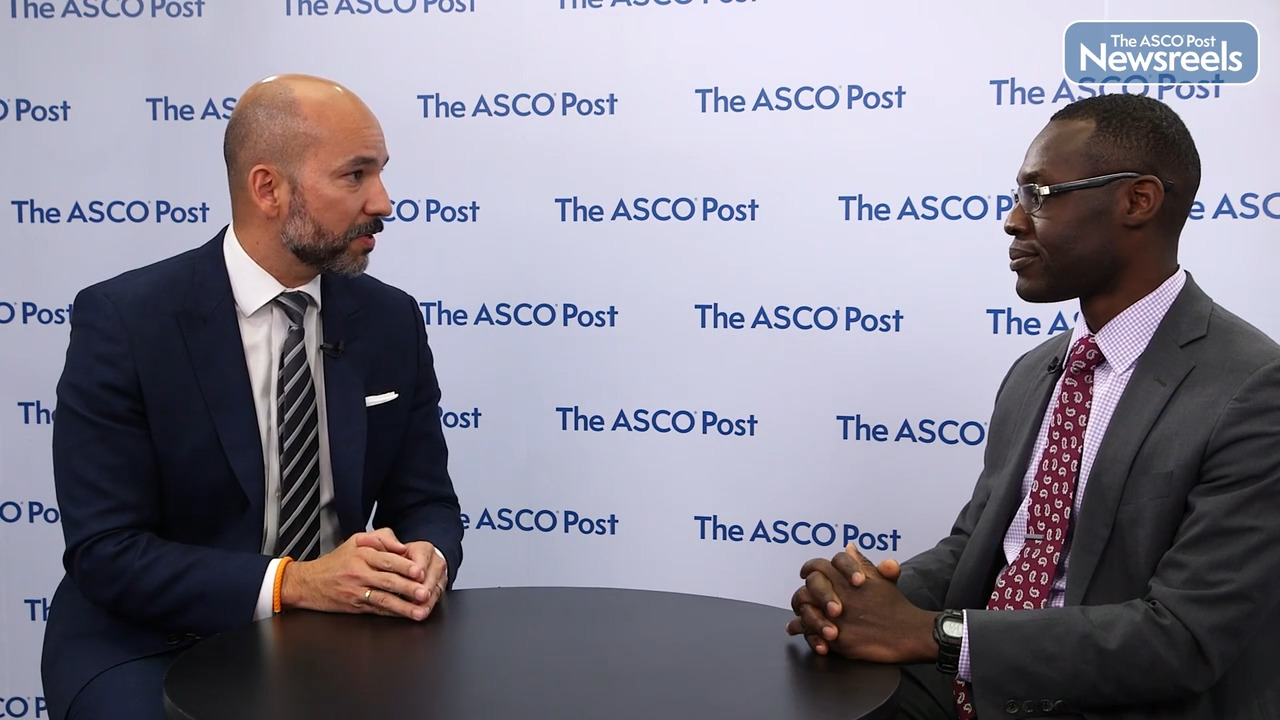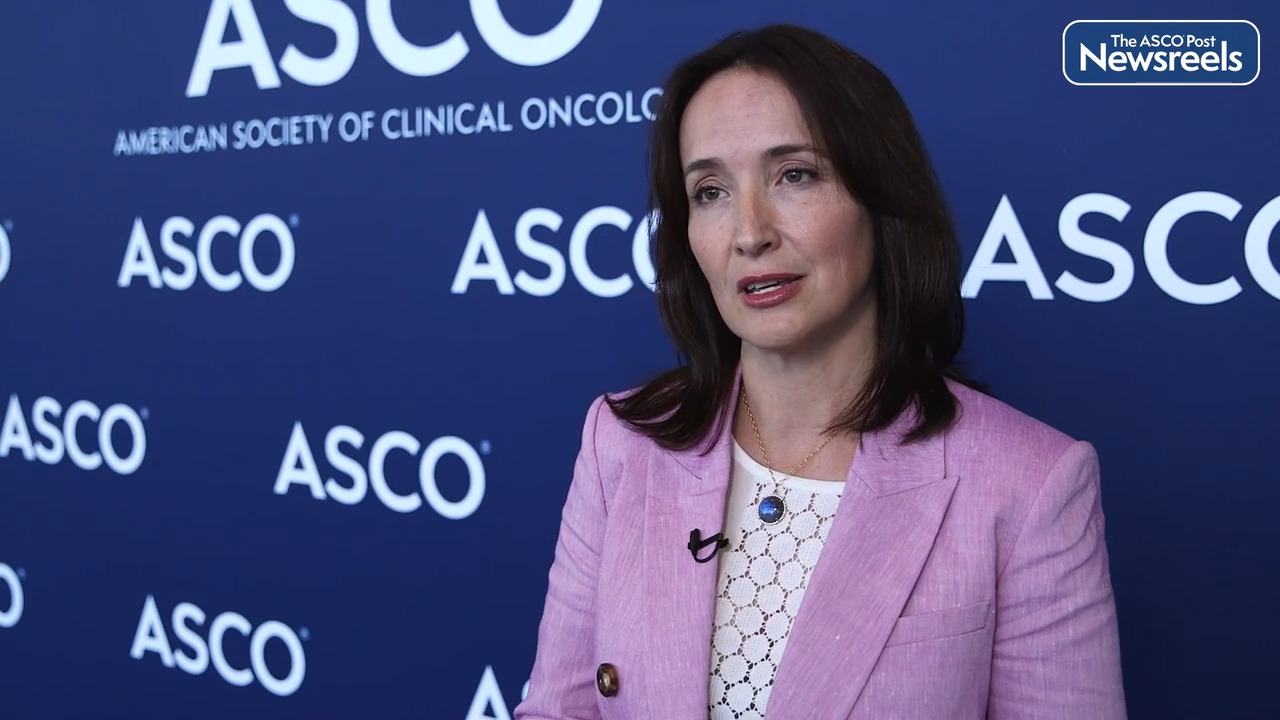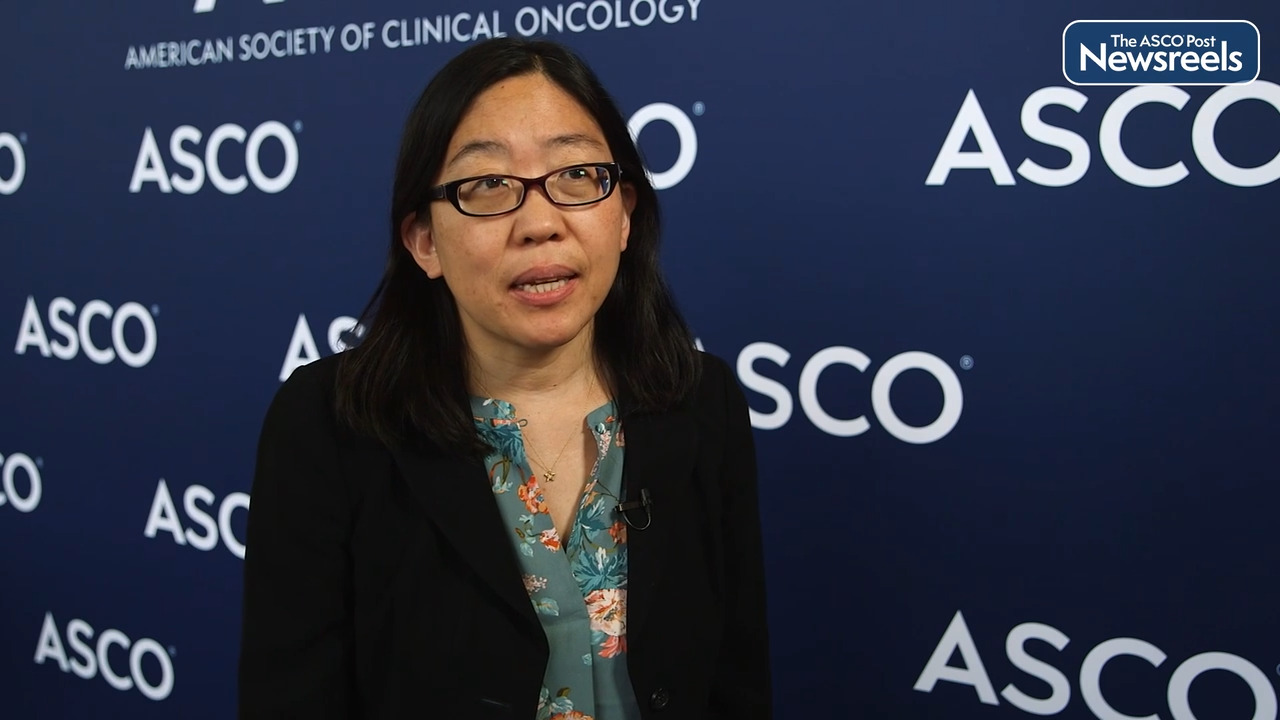Transcript
Disclaimer: This video transcript has not been proofread or edited and may contain errors.
Michael Overman: Jeanne. Great to see you here at ASCO 2022. Really exciting and congratulations for the dynamic study, the New England Journal of Medicine article, and then the presentation here. Can you maybe just start out and take us through the design and then the primary outcome of the dynamic study?
Jeanne Tie: So the dynamic study randomized stage two colon cancer patients to a CTDNA guided management or standard management. So in a CTDNA guided management, patients get blood test done for CTDNA analysis at week four and seven, after surgery. If they get a positive test at either of those time points, they receive chemotherapy. And those have negative results or not detectable CTDNA at both the time points, they don't get any adjuvant chemotherapy. And so the patients that's randomized to the standard care arm, or the adjuvant chemotherapy decisions based on the conventional clinical pathological criteria at Commission's discretion. So the main outcome from that study was that we demonstrated by using CTDNA results to guide therapy, we can reduce the number of patients having chemotherapy from 28%, which was the proportion in the standard care arm, down to 15% in the CTDNA guided arm. So nearly half the proportion of patients receiving chemotherapy and importantly we demonstrated that the recurrence free survival at two years and three years were very similar. So was not detrimental to, recurrence despite having less chemotherapy.
Michael Overman: Yeah, no, very exciting, Same outcome, but less kind of therapy given to people right? Kind of what we always talk about adjuvant therapy and how we over treat people. So that the desire to give to the right patient is fantastic. So really exciting. So maybe just diving in a little bit to some of the details. So I'll start with why the four and seven, why those time points, why two, is that critical do you think from your view?
Jeanne Tie: Yeah, the reason we did two time points is we anticipated to get a high sensitivity, high detection rate by doing two time points. As you know, these are quite low level mutations. Sometime we can miss this and we'll just do one time point of blood sampling. And the more volume you take as well, the more likely you’re going to detect them. And hence the reason for doing the two time points. Why week four, week seven, we think week four is probably the earliest possible time when we should be taking CTDNA. Just because you get the postop effect of the trauma related surgery that might mask some of the CTDNA detection. So week four we did. And week seven, really, so that we get the results back in time for the clinician to act upon it. Unfortunately, by doing both blood tests concurrently, the results was returned to the patient and the clinician about week 10. So the starting point for chemotherapy for that group was about week 11, week 12. So significantly longer than the standard care arm. I know that guideline is certainly we've encouraged to start chemotherapy week eight based on retrospective data, multiple retrospective data. But despite having late start of chemotherapy, the recurrence free survival in the CTDNA positive group of patients who received chemotherapy is still very favorable, about in the eighties, the recurrence free survival. And despite the late start, we're still seeing similar recurrence free survival. Perhaps for the future, I would imagine, and we did the two blood tests incurring really just increased efficiency of an analysis it was done in a research setting.
Michael Overman: Was tumor done before the blood even? When did the tumor start?
Oh, yes. This is the tumor informed essay, obviously. So we sequenced the tumor first to look for mutations with the patient.
Michael Overman: And that started like time zero or?
Jeanne Tie: No, we have to consent the patient before we can get the tumor. So that once the limitation of a research study is that we can't even initiate getting the tumor block for testing until we see the patient in the clinic, explain the study to them and consent them is part of the clinical trial. So it's around week four to five, we obtain the tumor and then we'll have to ship to Hopkins for analysis.
Michael Overman: So at the same time as the blood kind of concurrently?
Jeanne Tie: Yeah and the blood sample, obviously the week seven gets sent later on and the blood is analyzed at the later date. So sequencing first and then the blood time point. So overall takes about four to five weeks turn around the entire process, yeah.
Michael Overman: So I think maybe we'll dive a little bit into the details, cause I think the one question that you showed really nicely is overall, we have kind of equivalency, if you look at kind of the two outcomes. But if you do tease into that CTDNA negative cohort that had high risk, they did seem to do a little bit worse than the CTDNA negative, low risk. And so it does bring up the question of is it one or other, is it a composite? What's your thought on how to go forward there?
Jeanne Tie: So we also did a comparison with T3, T4 with the strongest prognostic factor within, amongst all the risk factors of T4. And when we look at T3, T4, the curves are very similar to the low risk high risk. So which I think points toward that T4 is really the factor that drives the high risk group. So yes, I think it's quite clear if you're low risk in CTDNA negative, you do really well. You're unlikely to benefit from chemotherapy. The question is, yes, the T4 or high risk group do less well, recurrence free survival in the eighties, but do they benefit from chemotherapy? That's the question we don't know, just because they do worse, will they benefit from chemotherapy? I think that it remains to be answered perhaps the next trial should be randomizing your T4.
Michael Overman: So great. We got a little bit left time left here. So what are some of those next trials that you think are really kind of critical and important for us as a community?
Jeanne Tie: So we're currently running trials in stage three, colon cancer. Sort of a similar sort of question. Can you deescalate, withhold some treatment or give less intensive treatment in the negative patient or escalate more intensive treatment longer or more drugs like for folfoxiri in the positive patients. And I know around the world, now there are many trials looking at stage two and stage three. You have Cobra study in the U.S, answering a slight different question, really is a CTDNA positive patient compared to no treatment versus the treatment, what is the benefit of treatment? Similar studies in the Europe, the Purdue study, there are multiple study around the world asking different questions. Then the other question is if you don't clear your CTDNA, can we salvage this patient with novel therapy? There's another group of trials out there starting to emerge.
Michael Overman: Yeah, just fascinating data. And I think your setting the stage for a lot of exciting things to happen in the future. And so thanks for starting us off and really kind of taking this for a number of years and getting us to this point with the first randomized study from the dynamic study. So Jeanne thanks so much great talking to you here.
Jeanne Tie: Pleasure.
